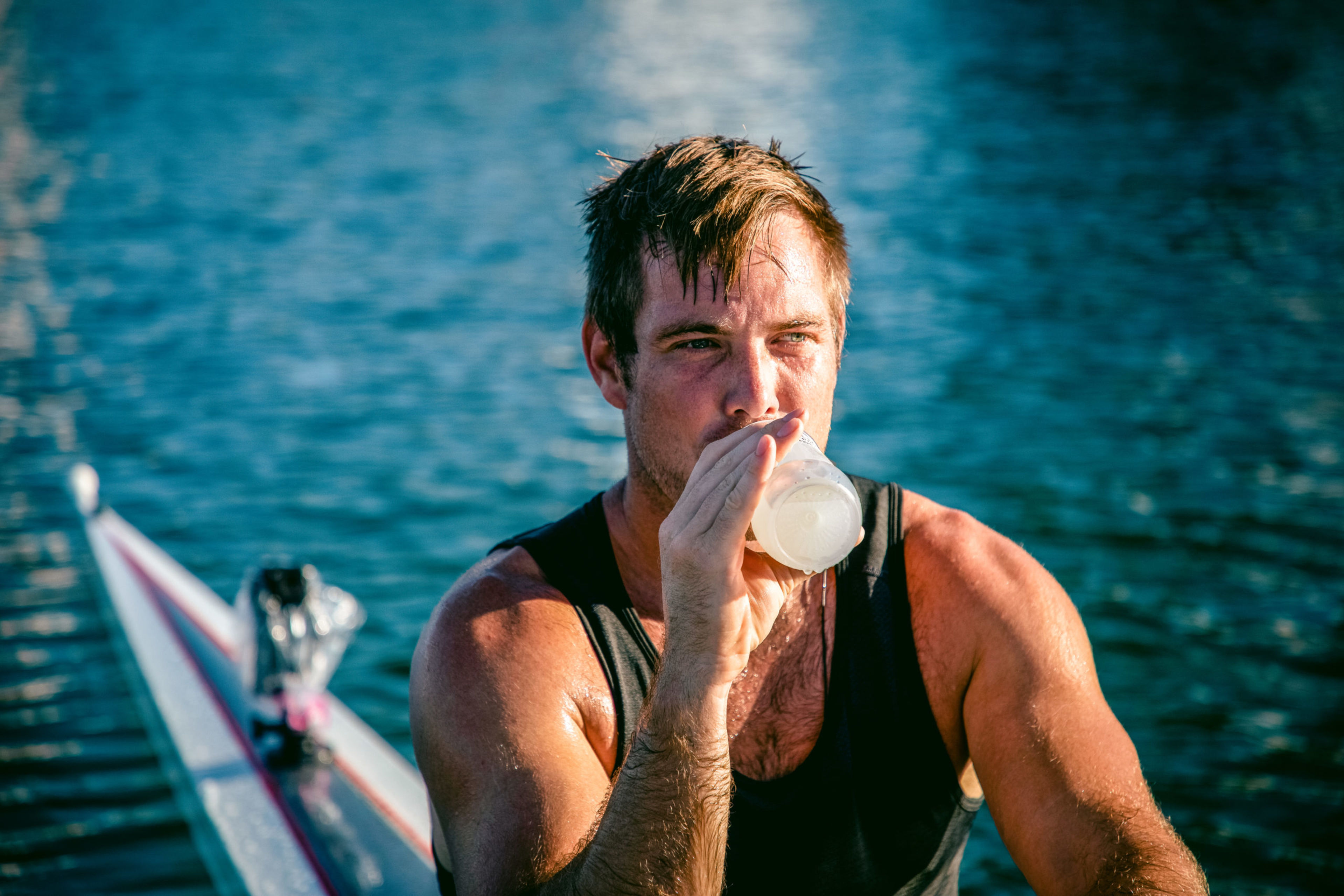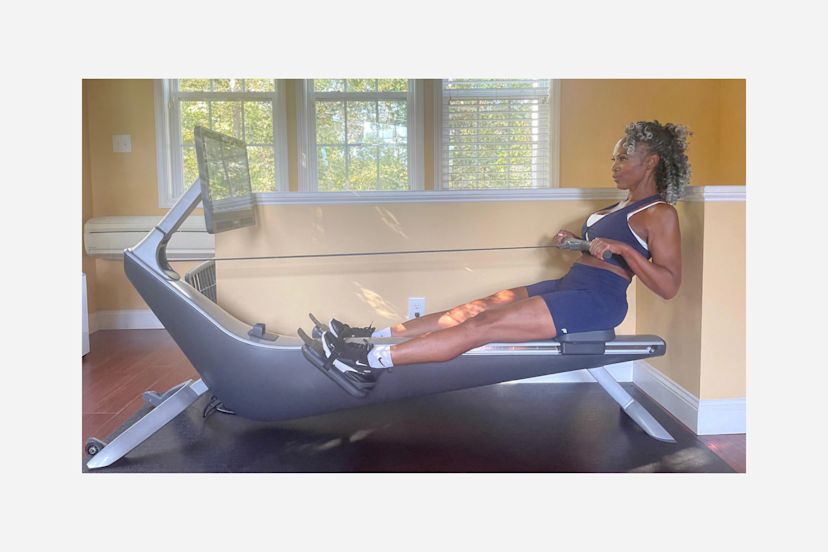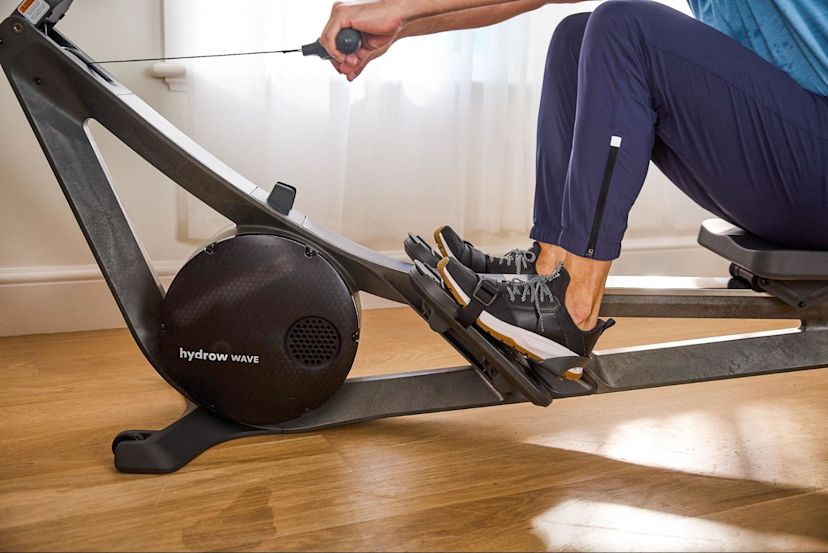Hydration and Hydrow

Staying hydrated is incredibly important to achieving your fitness goals and reaching your full potential with Hydrow. Read on to learn a little bit more about why hydration is so key to whole health.
Did you know your muscle tissue is made of 75% water? That’s why it is so important to stay hydrated, whether you’re a pro athlete or an everyday exerciser -- and with your Hydrow rowing machine working out 86% of those muscles, it’s even more so.
Water regulates body temperature, lubricates joints, protects vital organs, aids digestion, flushes waste, assists in transporting nutrients that give you energy, and helps your heart pump blood to your muscles. According to the American Heart Association, when you have less fluid in your body your heart has to work even harder to pump blood, which means your cardiovascular system might be in overdrive. If your heart is pounding way too much after a low to medium intensity workout, it could be a sign of dehydration.
Other signs of dehydration include tiredness, fatigue, muscle cramps, loss of coordination, dry mouth, dizziness, and inability to regulate body temperature efficiently which could lead to heat exhaustion, heatstroke, and other complications. If you’re experiencing rapid heartbeat or any of these symptoms, you should contact your emergency healthcare provider immediately as it could be something serious. Even a small amount of dehydration can put a damper on your overall athletic performance -- and for you battle paddlers, that could make the difference of being top of the leaderboard or sinking in the standings.
Depending on the intensity, you can lose more than a quart of water in just one hour of exercise. Good hydration is all about getting the right amount of water before and after your fitness routine. And, depending on the length of your workout, you may need to drink up in between, too. The right amount can depend on a number of factors and isn’t an exact science (because everyone is different), but for a good rule of thumb, the Food and Nutrition Board, recommends the following daily baseline:
-- Women: 2.7 liters (91 oz) -- Men: 3.7 liters (125 oz) -- 80% of hydration through beverages (water, juice, soda, smoothies, tea, lemonade, etc.) and 20% food (fruit, vegetables, soup, etc.)
Active individuals require even more water daily, especially if working out in the heat. For a baseline around that, the American Council on Exercise has suggested these hydration guidelines:
-- 17-20 ounces of water 2-3 hours before exercise -- 8 ounces 20-30 minutes immediately prior to exercise, or during warm-up -- 7-10 ounces every 10-20 minutes during exercise -- 8 ounces no more than 30 minutes after exercise -- 16-24 ounces for every pound of body weight lost after exercise
Body weight lost after exercise? Yep, that’s right. If you want to know exactly how much fluid you need, you can weigh yourself before and after exercise to see how much you’ve lost. For every pound of perspiration, that’s a pint (16- 24 ounces) you’ll need to put back in. Not sweating during a hard workout? That’s a tell-tale sign that you’re dehydrated to a serious level. Drink up!
When it comes to hydration, water is best for most people -- but if that’s not your thing and you have to fill up with flavor, try to avoid options high in sugar, caffeine and alcohol. If you feel thirsty, that means you’re probably already dehydrated (in fact, dehydration kicks in when your body’s levels are only 2% lower than normal). Sports drinks are most effective when used after high-intensity exercise over 45-minutes as they’ll help replace electrolytes, potassium and sodium levels. Ever notice those white, salty-looking sweat rings after an extra hard row? That’s your body losing sodium, which it needs to prevent hyponatremia (water intoxication). That brings us to our next topic: Yes, you can drink too much water.
It’s super rare, but hyponatremia is a serious medical condition caused by over hydrating. It’s mainly experienced by endurance athletes and marathoners who are drinking a lot of water but not replenishing electrolytes. When this happens blood becomes too diluted, causing a severe drop in sodium. If it is a mild case, you may not even know it but in severe situations symptoms can ironically mimic dehydration and include nausea, confusion, irritability and even death if not treated immediately. It’s no joke. If you think you’re experiencing signs of water intoxication, call 9-1-1 immediately.
Ultimately, water is the root of all life. You can go without food longer than you can go without water. It is the most important thing for all living things -- even more so when pushing your body to its full potential through exercise, and especially rowing on your Hydrow. Even low impact workouts like our On the Mat series, are better when you’re hydrated. Whole-body health starts with a sip -- and it is the reason why a water bottle is our first gift when you reach the 100,000-meter milestone. So fill up, take a swig, and start absorbing those important ounces.
Cheers!


